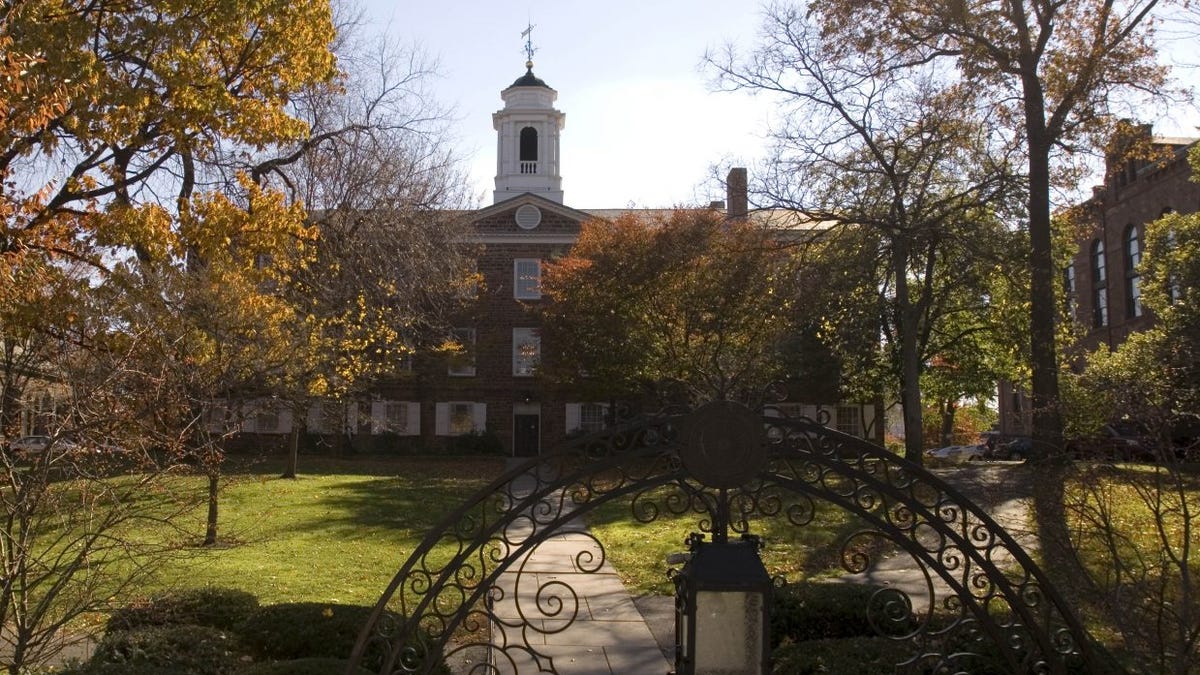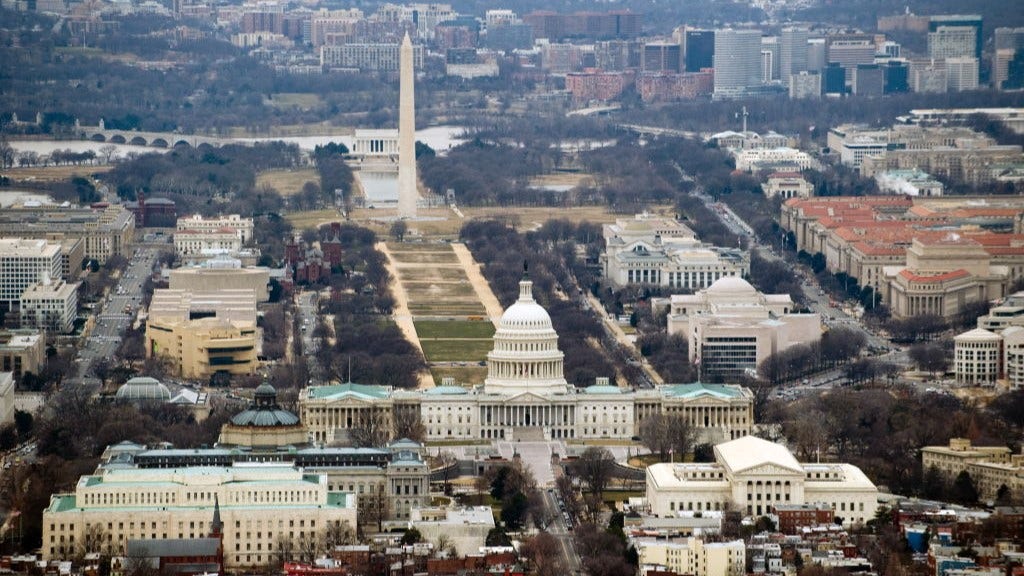Hawaii
Hawaii House: Short- And Long-Term Solutions 'Essential' To Survival Of West Maui

One month before the Hawaii Legislature convenes for its 2024 session, the House of Representatives on Friday released a lengthy list of recommendations on how best to respond to the deadly Maui wildfires.
The recommendations, which are not yet crafted as legislation, are likely to dominate the four-month session that begins Jan. 17. There are no specific dollar figures identified for expenses like staffing, either.
The deadly and destructive fires continue to slow the state’s economic growth, which will crimp Hawaii’s already reduced revenue stream and force leaders to make difficult funding choices.

The report also stresses that one legislative session alone will not fully rebuild Lahaina to its pre-fire state.
“In light of the many years it may take to restore Lahaina, short- and long-term solutions are essential to the economic and social vitality of West Maui and, by extension, the State,” according to the report’s introduction. “The work and resulting findings and recommendations of the working groups are but a small step toward a new, but never forgotten Lahaina.”
The recommendations come from six interim working groups established by the House not long after the fires struck Aug. 8.
Their focus was on the cleanup of ground and ocean contamination, the distribution of essential supplies, Maui unemployment and business activity, displaced school students and staff, temporary and transitional shelter, and the causes of wildfires and preventive action.
Most of the recommendations have previously been reported, but the highlights in the final report include the following:
Wildfire Prevention
- Increase the response capacity of state and county personnel to suppress wildfires.
- Maintain and update wildfire-specific equipment and wildfire-suppression infrastructure statewide.
- Create a public awareness campaign about preventing ignitions.
- Negotiate standing agreements to use privately owned water storage sources or other firefighting resources.
- Develop best practices regarding downed power lines and electrical power supplies during times of possible ignition.
- Increase criminal penalties for arson in the fourth degree during red flag warnings.
- Evaluate the use of “green” firebreaks created through strategic planting of water-rich, fire-resistant native species.
- Build upon existing research on the impacts of climate change on wildfire regimes, especially with extreme weather events such as hurricanes and drought.
Environmental Remediation
- The Department of Land and Natural Resources should be funded for regular ongoing chemical and physical coastal water quality testing and storm sampling.
- The DLNR needs aquatic biologist positions to support long-term water monitoring and pollution source detection.
- The Department of Health should be funded for air and water monitoring efforts, including expansion of monitoring stations in Kula and Lahaina.
- There should be further investigation into the feasibility of restoration of the wetland area in Lahaina.
Food, Water, Other Supplies
- The state should establish a comprehensive Distribution Management Plan that encompasses “all disasters and topics,” including language access and pet supplies.
- The state should enact a law to allow pharmacists to provide medication to patients without interruption during emergencies.
- The state should implement and facilitate programs and initiatives to provide personnel support for disaster response.
- The state should set aside funding to ensure that food banks have adequate storage capacity, labor and reserves for normal and emergency operations.
Jobs And Business
- The Unemployment Insurance Division of the Department of Labor and Industrial Relations must be properly staffed and supported with a system to efficiently process and manage claims.
- The University of Hawaii Maui College should be provided with additional resources to expand the Career and Technical Education apprenticeship program for hiring adjunct faculty.
- The development of child care services in West Maui should be encouraged to allow workers to return to work.
- Lenders are encouraged to consider the circumstances of the wildfires to reach an amicable resolution when constructing mortgage relief and forbearance agreements.
- The development of a visitor mobile application should be examined, which could assist in promoting responsible, respectful, and compassionate tourism.
Schools
- The Department of Education and Department of Transportation should assess all DOE school campuses to determine if there are sufficient emergency evacuation routes statewide.
- The DOE should create a process to quickly hire or reposition DOE personnel to better accommodate distance learning and learning alternatives.
- The DOE should monitor traffic congestion in the immediate vicinity of the Lahaina schools area and mitigate increased ingress and egress to the West Maui Lahainaluna Road.
- The Department of Accounting and General Services, DOE, School Facilities Authority and counties should develop and enforce regulations and guidelines for fire-resistant landscaping around school buildings.
Shelter
- The Hawaii Housing and Finance Development Corporation should expedite Low-Income Housing Tax Credit projects already funded with a match from the Rental Housing Revolving Fund and a portion of the State’s private activity bond allocation.
- The population who experienced houselessness before the wildfires such as victims of domestic violence need a long-term solution since the only West Maui homeless resource center burned in the fire.
- The Legislature should identify supportive programs for the Compact of Free Association population, including a possible infusion of funds to the Temporary Assistance for Other Needy Families program for those with children.
- The Legislature should pass a comprehensive law that allows construction of either Ohana Zone or Kauhale sites to be streamlined without the need for an emergency proclamation.
The final report, 144 pages in length and subtitled “Laulima for Lahaina Renewing Hearts, Homes, and Community,” emphasizes a multi-pronged response to the fires. Laulima is Hawaiian for cooperation or joint action.
“Life in Lahaina will never be the same. Lives have been lost. Schools have been damaged or destroyed. Long-time businesses have been reduced to piles of ash and rubble. The air, water, and soil have been contaminated,” the report says. “All of these concerns and more will be the many challenges that the Lahaina community must face. However, it does not have to face it alone, as many hands make light work.”
House Speaker Scott Saiki is encouraging the public to review the full report and provide input to the Legislature. Because the chairs and co-chairs of House committees will likely introduce and hear the bills that encapsulate the recommendations, passage of many of the proposals seems likely.
Gov. Josh Green — who had not yet seen the final report — said Friday that he had received periodic updates from the members.
“By all indications, first of all, they’ve done extraordinary work, quickly, and got together a lot,” he said. “And we all seem to be on the same page. Significant relief is going to be necessary for Maui this session and actually move (Hawaii) toward resiliency.”
Green said he would “follow the House’s lead, as we tend to do when they bring in financial recommendations at the outset this session. I assume we’re going to have very good buy-in from the Senate.”
The Senate did not issue comment on the House report, although senators have previously said they would consider any legislation that comes their way, and that senators are doing their own due diligence in terms of bills and funding.

Sign up for our FREE morning newsletter and face each day more informed.

Hawaii
Hawaii nonprofits brace for less federal funding
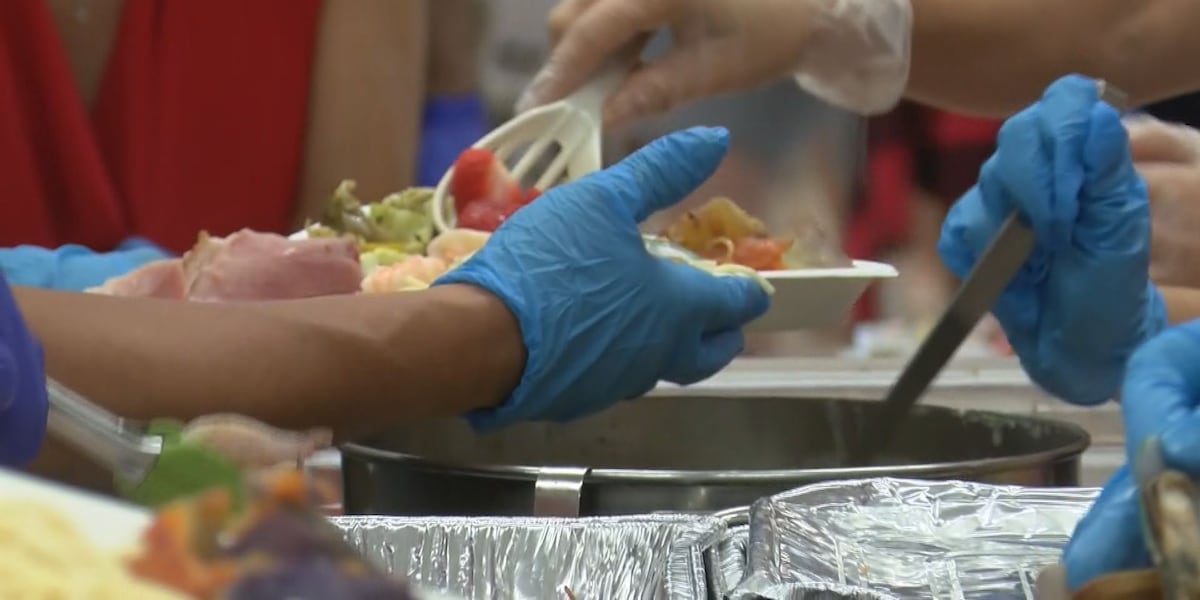
HONOLULU (HawaiiNewsNow) – Hawaii nonprofits that provide critical social safety nets are facing economic hardship of their own.
President-elect Donald Trump’s new Department of Government Efficiency (DOGE) is expected to slash federal appropriations, government contracts and grant awards, and heavily impact social services across the state.
Melissa Pavlicek, Hawaii True Cost Coalition, explained, “The community-based organizations that are providing key government services are already struggling to provide those services. Some of their contract prices have not increased in over 10 years. The cost to provide those services is significantly greater. The transportation costs, rent, employees, food, everything has gone up. And to serve the community costs more. So we’re looking to our state policy leaders to help ensure those services are continued.”
To mitigate the potential fallout or disruption of services, nonprofit leaders are working to fill the gaps with the help of lawmakers, private donors, philanthropy, corporate foundations and residents themselves.
Suzanne Skjold, Aloha United Way COO, said, “Whether that’s helping your neighbor, maybe donating to a charity that is losing a program, even getting involved politically, locally, you know, voting matters. Being involved in our legislature matters.”
“The slack really has to be picked up by the state and county governments as well as the private sector,” warned U.S. Rep. Ed Case, D-Hawaii, “and so these are gonna be tough times and I’m telling everybody, hey, let’s, not sugarcoat this. We have to be prepared for the unexpected.”
Another concern is legislation that some believe if passed could be used to target progressive nonprofits opposed by the Trump administration.
For now, community advocates are urged to keep calm.
Case said, “The first thing I would advise everybody is not to freak out. That we have been through changes in administration before. That these are core federal programs that within Congress, even a divided and polarized Congress, many, many people from both parties support these programs.”
“We want to make sure Hawaii doesn’t become the kind of place where we lead in a way that’s hateful to others,” Skjold said.
Copyright 2024 Hawaii News Now. All rights reserved.
Hawaii
Visitors warned after toddler nearly runs off 400-foot cliff near Hawaii volcano
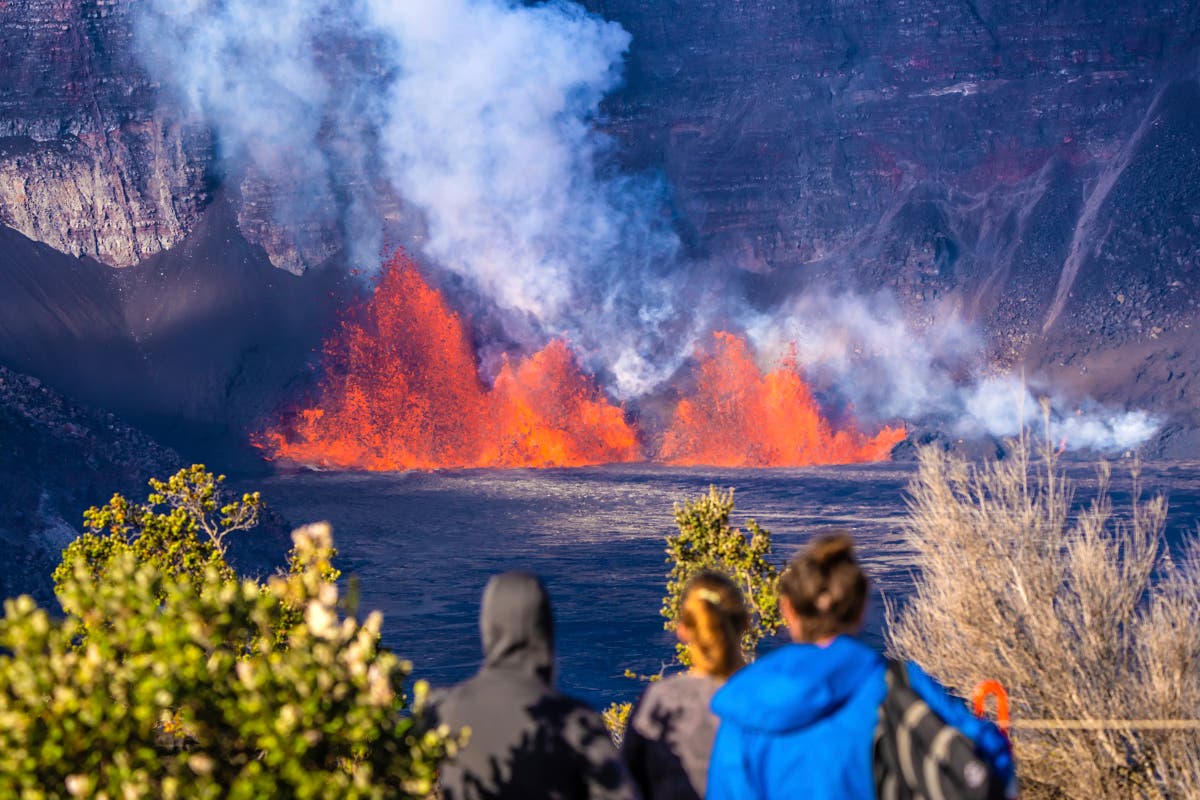
The National Park Service is warning parents to keep their children close after a toddler ran toward the edge of a 400-foot-tall cliff at Hawaii National Park on Christmas.
The young boy was at the park with his family to view the eruption of the Kilauea volcano. They were in a closed area at Kilauea Overlook when he wandered away from his family before the “near miss.” His mother, screaming, managed to grab him just about a foot away from a fatal fall.
“Park rangers remind visitors to stay on trail, stay out of closed areas and to keep their children close, especially when watching Kīlauea from viewpoints along Crater Rim Trail. Those who ignore the warnings, walk past closure signs, lose track of loved ones, and sneak into closed areas to get a closer look do so at great risk,” the agency warned.
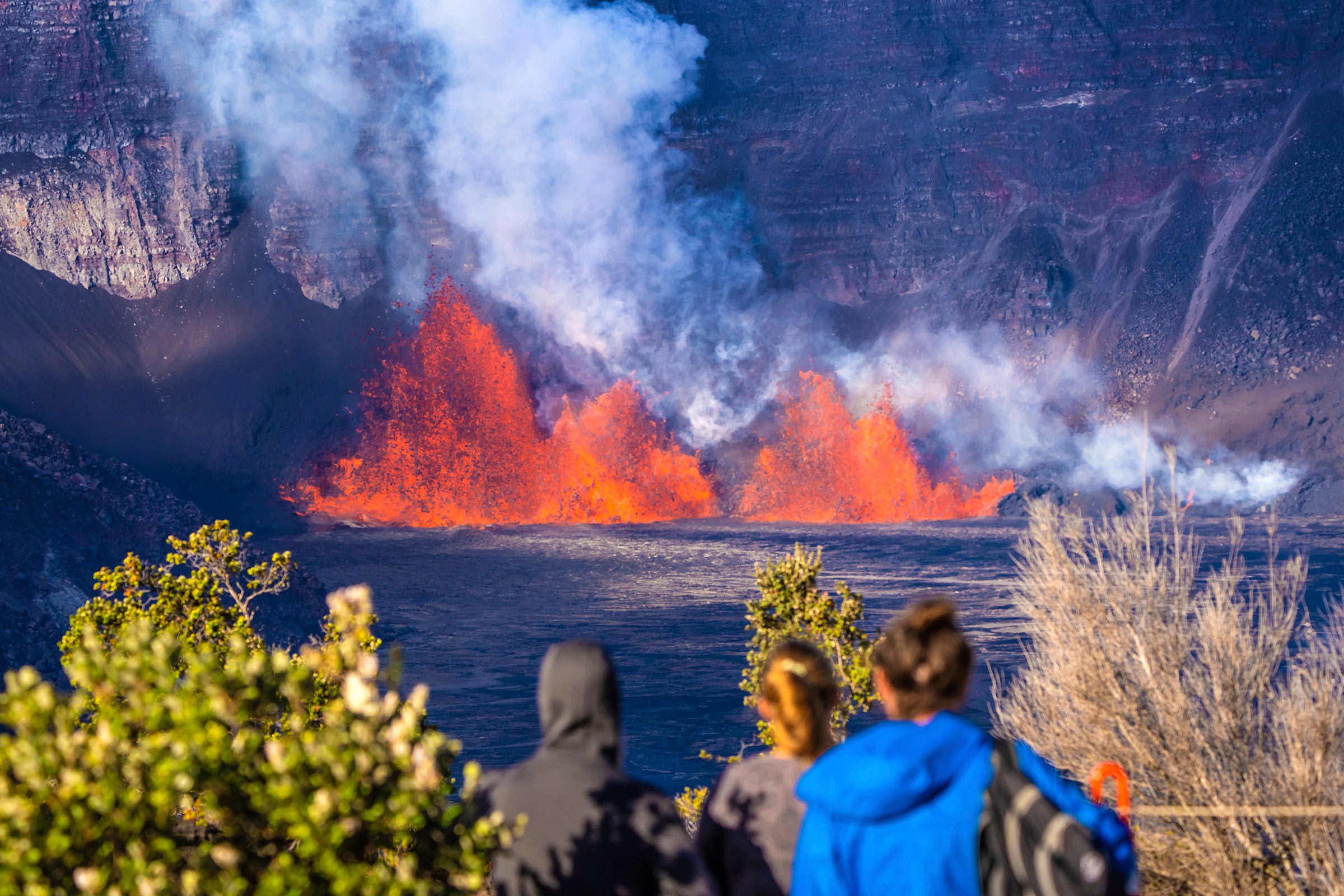
Rangers noted that dangers escalate during volcanic eruptions, as people flock to view the spectacle of lava flowing out of the Earth’s crust. The Park Service urged drivers to slow, and watch out for pedestrians, Hawaiian geese, and switch to low beams when other cars and pedestrians are present.
The eruption, which started on December 23, is now in its second pause, according to the USGS Hawaiian Volcano Observatory. But, it could still restart at any time.
Furthermore, emissions of toxic gas remain high, including particulate matter called tephra. Billions of minuscule pieces of tephra, which include all fragments of rock ejected into the air by an erupting volcano, can be carried on winds for thousands of miles and can cause respiratory issues. Volcanoes also produce dangerous gases, like carbon dioxide and hydrogen chloride.
Tephra has blanketed the closed portion of Crater Rim Drive downwind of the lava.
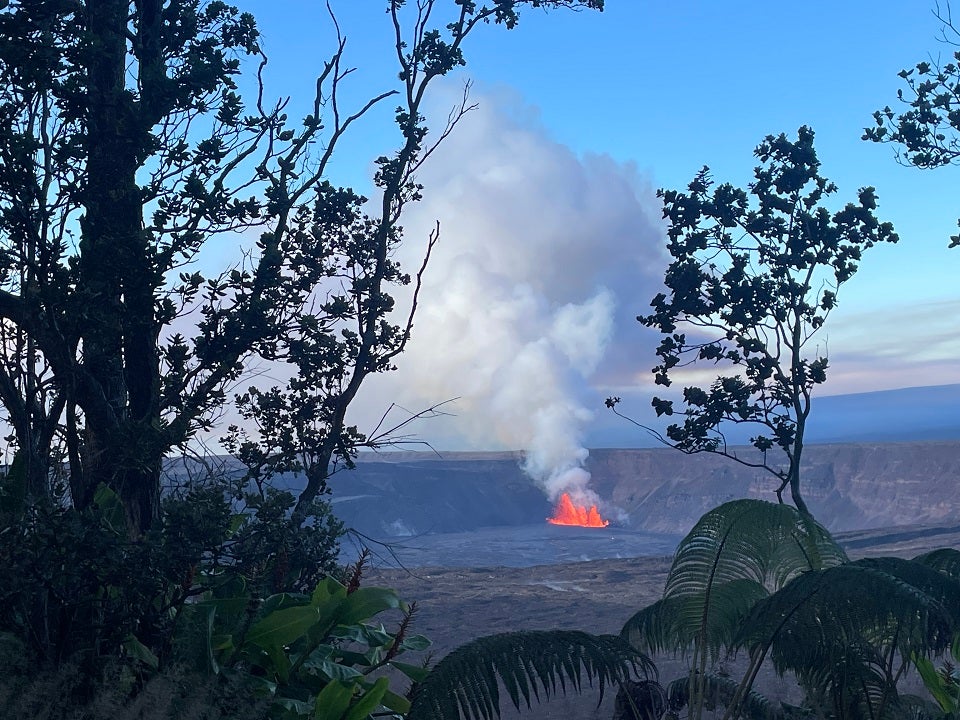
“The hazards that coincide with an eruption are dangerous, and we have safety measures in place including closed areas, barriers, closure signs, and traffic management,” Park Superintendent Rhonda Loh said in a statement.
“Your safety is our utmost concern, but we rely on everyone to recreate responsibility. National parks showcase nature’s splendor but they are not playgrounds,” she said.
Hawaii
Hawaii Supreme Court rejects county council candidate’s election lawsuit

HONOLULU (HawaiiNewsNow) – The state Supreme Court has rejected a lawsuit by Maui County Council candidate Kelly King to overturn the general election results.
King lost her race last month to incumbent Tom Cook by 97 votes.
She argued the county rejected too many ballots because of missing or invalid signatures, and that voters weren’t offered enough help to fix the problems.
In Maui County, there were nearly 1,100 deficient ballots compared to the national average. King says Maui County’s rejection rate was nearly double the state average in 2022.
But the high court ruled Tuesday that the County Clerk’s Office followed state law and all administrative rules to cure the deficient ballots.
View the full decision here.
PREVIOUS COVERAGE
Copyright 2024 Hawaii News Now. All rights reserved.
-
/cdn.vox-cdn.com/uploads/chorus_asset/file/24924653/236780_Google_AntiTrust_Trial_Custom_Art_CVirginia__0003_1.png)
/cdn.vox-cdn.com/uploads/chorus_asset/file/24924653/236780_Google_AntiTrust_Trial_Custom_Art_CVirginia__0003_1.png) Technology1 week ago
Technology1 week agoGoogle’s counteroffer to the government trying to break it up is unbundling Android apps
-

 News1 week ago
News1 week agoNovo Nordisk shares tumble as weight-loss drug trial data disappoints
-

 Politics1 week ago
Politics1 week agoIllegal immigrant sexually abused child in the U.S. after being removed from the country five times
-

 Entertainment1 week ago
Entertainment1 week ago'It's a little holiday gift': Inside the Weeknd's free Santa Monica show for his biggest fans
-

 Lifestyle1 week ago
Lifestyle1 week agoThink you can't dance? Get up and try these tips in our comic. We dare you!
-
/cdn.vox-cdn.com/uploads/chorus_asset/file/25672934/Metaphor_Key_Art_Horizontal.png)
/cdn.vox-cdn.com/uploads/chorus_asset/file/25672934/Metaphor_Key_Art_Horizontal.png) Technology4 days ago
Technology4 days agoThere’s a reason Metaphor: ReFantanzio’s battle music sounds as cool as it does
-

 Technology1 week ago
Technology1 week agoFox News AI Newsletter: OpenAI responds to Elon Musk's lawsuit
-

 News5 days ago
News5 days agoFrance’s new premier selects Eric Lombard as finance minister







